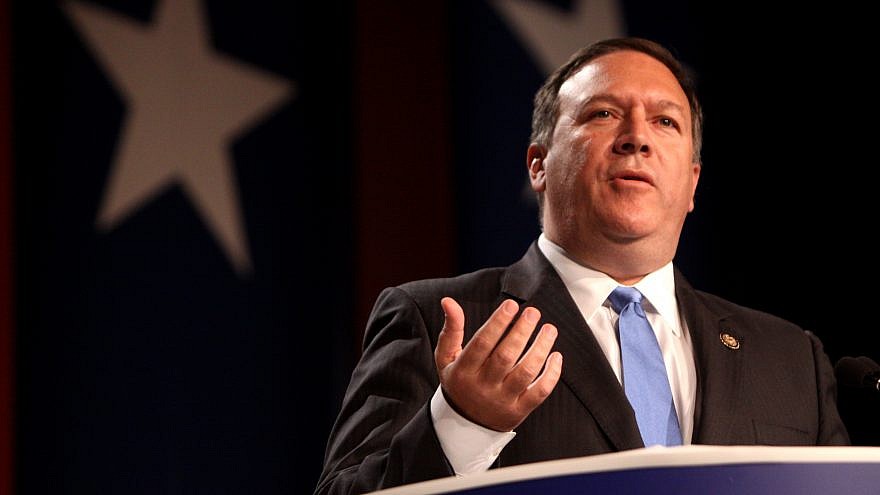Everyone was eager to hear from the new U.S. secretary of state, but they didn’t care much for what he said. Many international observers hoped that Mike Pompeo’s speech would sound a cautionary note that would indicate that the Trump administration was proceeding slowly after the president withdrew the United States from the Iran nuclear deal.
Instead, they heard a ringing declaration of an American intent not only to force Iran to give up its nuclear quest in a way that the pact negotiated by the Obama administration failed to do. He also made it clear in a 12-point manifesto that the United States was determined to put a stop to Iran’s non-nuclear threats in terms of missile production, as well its support for terrorism and regional adventurism, further demanding a complete Iranian withdrawal from Syria.
As for the futility of sanctions, Obama and former Secretary of State John Kerry often boasted that the squeeze that the West put on Iran’s shaky economy was the reason it came to the negotiating table in the first place. The only real difference between Pompeo in 2018 and Kerry in 2013 is that when presented with an obdurate Iranian negotiating partner that said “no” to every demand that it cease its dangerous behavior, the Americans folded. Over the course of the talks, Kerry gave in on virtually every point—not only giving Iran a path to a bomb, but also the financial clout to step up its support for Hezbollah and to build bases in Syria, from which it now threatens Israel.
But the point about this narrative is not just that, as Trump correctly points out, Kerry was a lousy negotiator. It’s that none of Iran’s gains in the last five years had to happen. The Iranians saw that although they desperately needed sanctions relief to prop up their failing economy in the face of domestic unrest, Obama and Kerry seemed to want a deal more than they did. Indeed, America backed off from efforts to stop the unfolding humanitarian disaster in Syria largely in order to avoid offending the Iranians.
Rather than press their advantage, Obama and Kerry gave up and let the Iranians have their way because the president’s true goal was to achieve a rapprochement with the regime and not a fundamental change in its nature.
All Pompeo is trying to do is to return to that crucial moment in 2013, when it seemed possible to force the Iranians to change, as well as to give up their nuclear quest.
The difference is that while Obama was able to get grudging support for sanctions from America’s allies and trading partners, the rest of the world seems determined to protect their right to trade with Iran and keep the deal in place, even if that also means that a deadly threat to the West—and to Israel and the Sunni Arab states that are even more frightened by Iran—will also be preserved.
That makes Pompeo’s task more difficult than the one presented to Kerry before he shirked the struggle in the course of a shift to appeasement of Tehran. But it is by no means impossible.
As much as the Europeans keep telling the administration that they won’t go along with tougher new sanctions, the notion that they will choose to continue to do business with Iran—even if it means being cut off from conducting transactions with U.S. financial institutions—is ludicrous. They won’t like it, but if Pompeo means what he says about strict enforcement of sanctions, then Europe, Russia and China will have to go along with them in one way or another. That won’t make Trump or Pompeo very popular in Paris or Berlin, but the end result will be Iran’s isolation, not that of the United States.
Pompeo spoke the truth when he implied that Iran was bluffing about its ability to defy sanctions, especially in the face of a restive population that is tiring of its theocratic tyrants. Instead of acting as if Iran is the strong power and the United States is too weak to defend its interests, Pompeo reminded Tehran that the reverse is true.
While the path that lies in front of the administration is fraught with difficulties, Pompeo’s rejection of Obama’s defeatism about America’s place in the world, coupled with his realism about the need to bring a fundamentally weak Iranian regime to heel, is a necessary prelude to any effort to roll back the gains Iran has made since 2013. Doing so is not an abdication of U.S. leadership of the West, but a reassertion of principles that Obama abandoned to the detriment of American security and that of our allies.


























